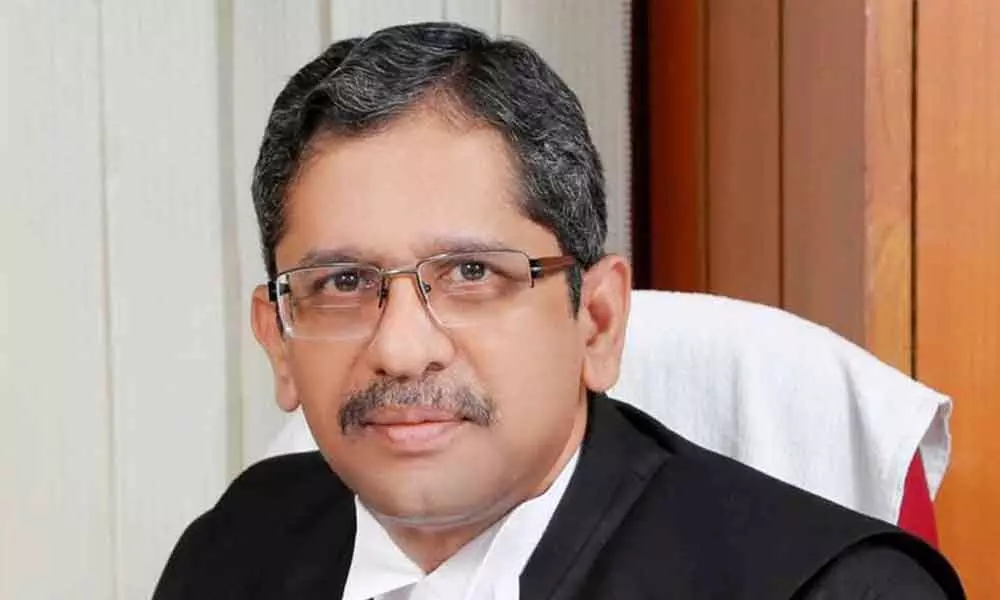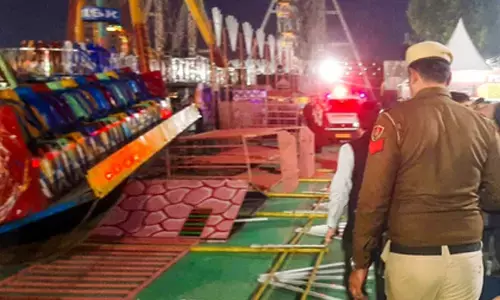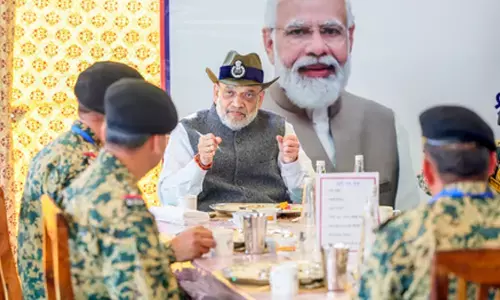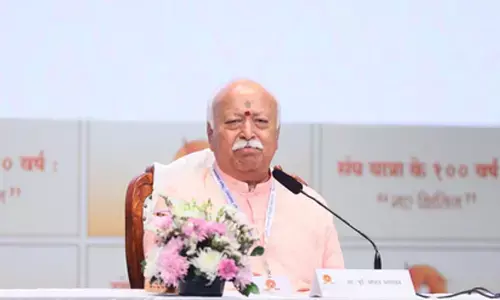False narratives created on 'easy life' led by judges: CJI NV Ramana

Chief Justice NV Ramana (File/Photo)
Chief Justice of India NV Ramana on Thursday said there are number of sacrifices one must make when one decides to become a judge - lesser money, a reduced role in society, and a huge amount of work, "yet a misconception exists that judges stay in big bungalows and enjoy holidays".
New Delhi: Chief Justice of India NV Ramana on Thursday said there are number of sacrifices one must make when one decides to become a judge - lesser money, a reduced role in society, and a huge amount of work, "yet a misconception exists that judges stay in big bungalows and enjoy holidays".
Delivering the farewell address at the function organised by the Supreme Court Bar Association on the retirement of Justice RF Nariman, he said, for a judge, it is not easy to prepare for more than 100 cases every week, listen to novel arguments, do independent research, and author judgments, while also dealing with the various administrative duties of a judge, particularly of a senior judge.
"We continue to work even during the court holidays, do research and author pending judgments. Therefore, when false narratives are created about the supposed easy life led by judges, it is difficult to swallow," the CJI said.
"We cannot defend ourselves. It is the duty of the Bar to refute these false narratives and to educate the public about the work put in by judges with the limited resources given to them," he said.
Chief Justice Ramana highlighted a few things, which are not known to the public at large and the first relates to the number of sacrifices one must make to become a judge.
"The most obvious sacrifice is monetary, particularly when you are Brother Nariman with a roaring practice. One must be moved by a spirit of public duty to take such a decision. The second aspect relates to the reduced role in society one must accept when becoming a judge," he added.
However, he clarified that he does not believe that judges must completely seclude themselves, as it is important to stay in touch with society and the profession even as a judge. He, however, added that it is an "undeniable fact that our engagement with society undergoes a drastic change after taking up judgeship".
"The third point I would like to flag relates to the amount of work we put in as judges, day in and day out. There exists a misconception in the minds of the people that judges stay in big bungalows, work only 10 to 4 and enjoy their holidays. Such a narrative is untrue... We either burn the midnight oil, or wake up before sunrise, or sometimes even both, to fulfil our judicial duties," he added.
If Justice Nariman had continued to be a lawyer rather than becoming a judge, he could have led a more luxurious and relaxed life, he said.
However, the CJI said: "I hope the picture I have painted of being a judge does not deter anyone from taking up a judgeship.
"The reward is in the feeling that we judges get every day in court - in upholding the law and the noble values enshrined in the charter that 'We, The People of India', gave ourselves 71 years ago."
In conclusion, he said: "It is rare to find those who stand by their principles. Brother Nariman is one of them. I mentioned during the reference earlier today, that with Brother Nariman's retirement, I feel like I am losing one of the lions that guarded the judicial institution."














